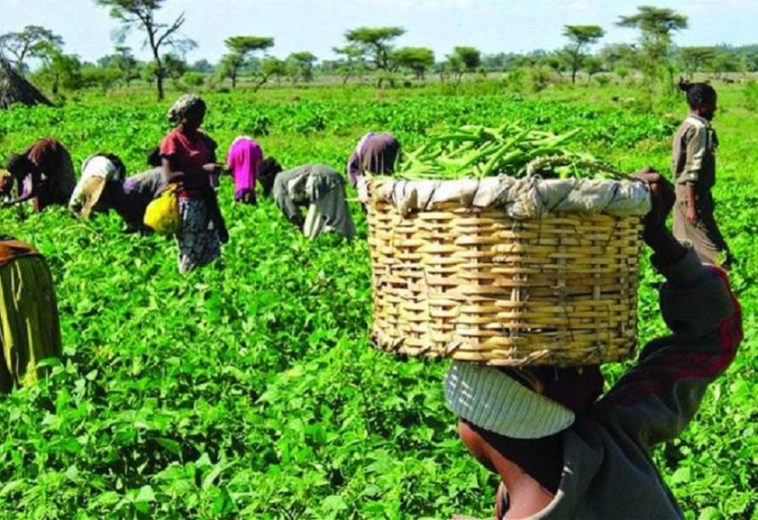Africa’s supply chain landscape faces unprecedented challenges alongside transformative opportunities as the continent grows economically and becomes increasingly integrated into the global economy. Factors such as climate change, geopolitical tensions, and rapid technological advancements are not only shaping Africa’s trade and industry but also play a critical role in its broader economic development.
Historically, Africa’s supply chains have centred on the extraction and export of raw materials—such as oil, minerals, agricultural produce, and timber—often with minimal value-added processing before reaching global markets. However, Africa’s logistical infrastructure, especially in rural and remote areas, has struggled to meet the demands of a fast-growing population and expanding middle class.
With Africa’s economic growth accelerating, there is a mounting emphasis on diversifying supply chains and developing more robust, self-sufficient systems capable of withstanding global shocks. This shift aims to reduce Africa’s dependency on foreign imports and build resilience against unforeseen global disruptions.
The COVID-19 pandemic starkly highlighted the fragility of global supply chains. Lockdowns, border closures, and factory shutdowns across the world caused severe disruptions for many African countries, particularly in accessing essential goods such as medical supplies and food. This experience underscored the need for Africa to bolster its supply chain resilience, diversify sourcing strategies, and invest in local manufacturing to reduce reliance on volatile global networks.
Trade conflicts among global powers, notably between the U.S. and China, have had ripple effects on African supply chains. As global trade flows grow increasingly unpredictable, African countries are re-evaluating their reliance on specific markets and suppliers. For instance, countries heavily dependent on Chinese imports or exports have had to adapt to changing tariffs, trade restrictions, and supply shortages. Additionally, Brexit and shifts in European Union trade policies have impacted African exporters, particularly those benefiting from preferential trade agreements with the EU.
Africa’s vulnerability to climate change is another critical issue. The continent’s agriculture, water resources, and infrastructure are already strained due to rising temperatures, droughts, floods, and erratic weather patterns. Given Africa’s reliance on natural resources such as timber, minerals, and fossil fuels, addressing these environmental challenges is crucial. Building climate-resilient supply chains that can absorb environmental shocks is an urgent priority to secure Africa’s future.
Advancements in technology—such as automation, artificial intelligence, blockchain, and the Internet of Things (IoT)—are also reshaping supply chain operations. While the adoption of digital tools across the continent remains uneven, there is considerable progress in mobile banking, e-commerce, and logistics. The potential for technology to revolutionise Africa’s supply chains is especially significant in sectors like agriculture, where digital platforms for farmers, drones for crop monitoring, and blockchain for traceability are already making tangible impacts.
The African Continental Free Trade Area (AfCFTA), established in 2021, represents a pivotal step in Africa’s move toward a more integrated and self-sufficient economy. By eliminating tariffs and reducing trade barriers within Africa, the agreement promotes intra-continental trade and lessens reliance on external markets. AfCFTA is expected to strengthen Africa’s internal supply chains by boosting the movement of goods, services, and capital across borders.
READ ALSO: BRICS Banknote: The Implications Banknote on Intra-African Trade
Africa’s infrastructure deficit remains a major impediment to efficient supply chains. However, regional projects like the African Union’s Programme for Infrastructure Development (PIDA) and the Belt and Road Initiative (BRI), especially in countries such as Kenya, Ethiopia, and Nigeria, are making headway in enhancing transportation networks, logistics, and digital connectivity. The development of ports, railways, and highways is essential for fostering Africa’s internal trade, reducing logistical costs, and improving access to global markets.
The challenges Africa faces in the 21st century pose substantial risks to its supply chains. Transforming the continent’s supply chain landscape will require a focus on regional integration, infrastructure upgrades, support for local manufacturing, and the adoption of sustainable digital technologies. As the world evolves, Africa’s ability to navigate and adapt to these challenges will be instrumental in defining its role within the global economy—and in harnessing the vast potential of its youthful, dynamic, and entrepreneurial population.




